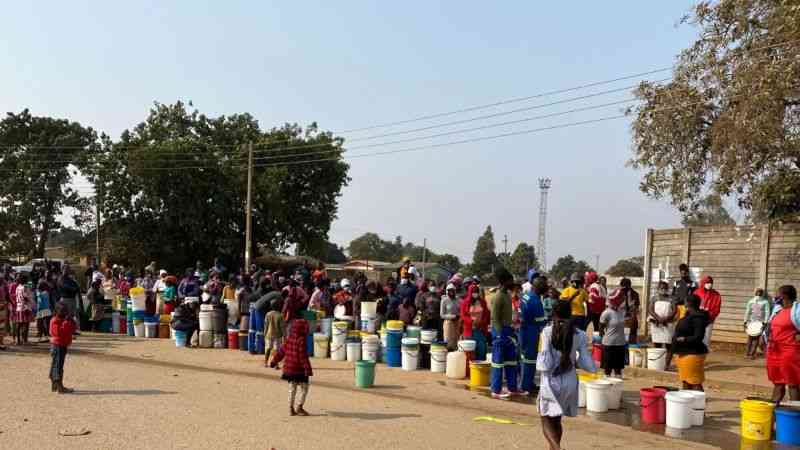
INDUSTRY players have expressed concern about water and power challenges in the country, as the twin devils are now reducing production processes and driving up operating costs, businessdigest can report.
This comes after electricity and water shortages have been affecting industries.
With the El Niño-induced drought already underway, water and power challenges are expected to worsen in 2024.
Confederation of Zimbabwe Industries president Kurai Matsheza told businessdigest in an interview that power and water challenges had severely affected businesses.
“With the possibility of poor rain, inflow into Kariba may be low and coupled with the old units (1 to 6) at Hwange, it will operate below capacity as there are capes required to refurbish them. Thus, on those twin challenges of water and electricity, the situation may not improve,” Matsheza said.
“There is a need to speed up refurbishment of old units at Hwange for electricity and on the water side for Harare, the Kunzvi Dam needs to be completed soon.
“Some have had to sink boreholes on site to augment supplies, though the challenge is that some underground water is not good for industrial processes. The loadshedding too is affecting all including domestic.”
Government has only allocated capital spending of ZW$266 billion to the energy sector and ZW$608,2 billion towards water and sanitation, despite the critical role the two sectors play in an economy.
- Manufacturers get US$300m lifeline
- CZI calls for concrete solutions
- Power crisis hits Proplastics factory
- Industry, govt tussle over imports regime
Keep Reading
Economist Prosper Chitambara urged the government to address power challenges, saying they were pushing up the cost of doing business within the industry.
“Power challenges remain a challenge and that continues to increase the cost of doing business in the economy. So, I think the government needs to address this because a lot is happening, but it will take a bit of time for us to be energy self-sufficient,” Chitambara said.
“But, we also need to be focusing a lot on renewable energy and providing the right kind of incentives for the uptake of renewable energy to actually increase, especially for the private sector.”
He said the government should create an enabling and conducive operating environment for business through incentives for industry to be able to increase capacity utilisation.
“However, we have seen the minister come up with new taxes that are a way of trying to mobilise additional revenues and resources to finance critical sectors. They are going to increase the cost of doing business, the cost of production. So, that could have an adverse impact on businesses,” Chitambara said.
He also urged the government to address the issue of bottlenecks with regards to cost of financing and working capital from banks for industry to access proper financing.
“Allocation for industry and commerce is ZW$130,5 billion actually, which represents just about 0,2% of the total budget,” Chitambara said.
“I think with industry, the best way of supporting industry is to ensure that the business environment is actually conducive for industry to thrive.
“So, we need to address a lot of the bottlenecks, especially around the cost of finance, the cost of getting working capital from the banks.”
He said macroeconomic stability would reduce interest and make it cheaper to borrow for industry.
Economist Gift Mugano said the budget allocation to the energy sector was not enough to recapitalise the power utilities in the country.
“Look, it’s not enough, even if the ministry wants to lay it to our utility companies for recapitalisation. The challenge, which we have in terms of energy, we need millions of United States dollars,” he said.
“In terms of total share of capital, we need about US$30 billion dollars in all types of infrastructure, water sanitation, ICT, roads and the energy sector.”
Thus, the energy allocation, Mugano continued, was a drop in the ocean.
“So, the most effective way of dealing with energy issues is to have a proper business environment where people can invest into long-term investments into energy,” he added.
However, Mugano said the volatile currency was forcing high tariffs.
The official foreign currency exchange rate as at November 30 stood at US$1:ZW$5 791,08







